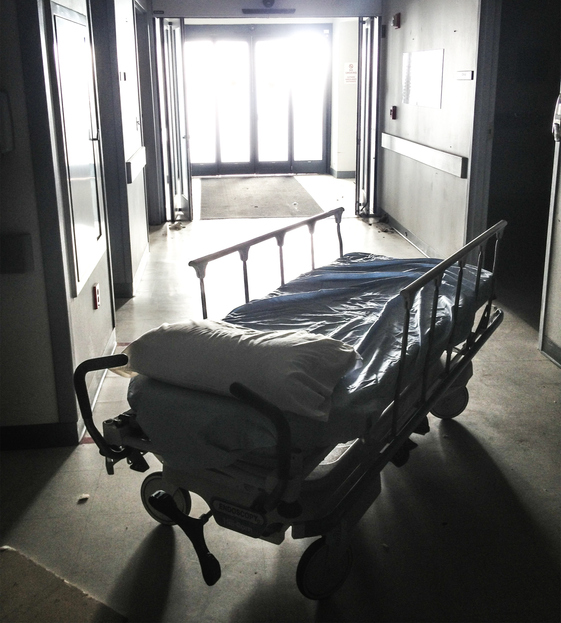An interim meeting of the American Medical Association’s (AMA) House of Delegates in November rejected two resolutions that would have softened its opposition to doctor-assisted suicide.
AMA delegates voted on 50 draft resolutions, two of which pertained directly to assisted suicide and euthanasia.
If passed, Resolution 4 would have struck language prohibiting physicians from performing euthanasia and assisted suicide from the current code of ethics, which states “the societal risks of involving physicians in medical interventions to cause patients’ deaths is too great to condone euthanasia or physician assisted suicide at this time.”
Resolution 5 proposed a “neutral” stance on the topic. Both resolutions would have altered the terminology from “euthanasia” or “physician assisted suicide (PAS),” to Medical Assistance in Dying (MAiD).
Legalization, Expansion
As of 2020, 18 jurisdictions around the world had legalized PAS, resulting in access for more than 200 million people. Within the United States, nine states and the District of Columbia had passed laws legalizing PAS as of August 2023. In Montana, a state court ruling held the practice legal.
In June, Hawaii Gov. Josh Green (D) signed a bill altering the state’s 2019 Our Care, Our Choice Act, allowing advanced practice registered nurses (APRNs) in addition to physicians to prescribe life-ending drugs.
Telehealth expansion during the pandemic has further complicated PAS legal parameters. In May, Vermont Gov. Phil Scott (R) signed a law permitting doctors in the state to prescribe life-ending drugs to non-residents, 10 years following legalization.
The most permissive in the country, Vermont’s law may serve as a gateway for “suicide tourism.” According to groups opposed to the law, Vermont Right to Life and True Dignity Vermont, the legislation includes no tracking system for lethal prescriptions and no provisions to prevent abuse.
The state of Oregon reached a legal settlement to allow for similar non-resident access in March 2022.
‘It’s Deceitful’
The AMA debate is simply a distraction from a nationwide movement toward institutionalization of assisted suicide, said health care industry researcher Scott Schara.
“The AMA is using a dialectic discussion that encourages a debate about something that’s already in practice,” said Schara. “It’s deceitful, a trick. They are just trying to distract people. We are already assisting people in dying, euthanizing, and hastening their death.”
Following the death of his daughter, Grace, a patient with Down Syndrome who was refused resuscitative care in a hospital during the pandemic, Schara has amassed an extensive amount of material on what he calls “medical murder.”
Cancer and heart disease are being outpaced by medical murder as America’s leading killer, Schara found, describing a “degree of negligence and recklessness which can only be identified as intentional.”
Obamacare Compatible
“The health care culture has been supporting physician-assisted suicide much longer than people think,” said Schara. “We’ve been pointing our fingers at the Canadians but all the while we’ve been [allowing] it. The U.S. was the first to the table with assisted suicide under section 1553 of Obamacare.”
Titled “Prohibition Against Discrimination on Assisted Suicide,” the section prevents the government from discriminating against any doctor who “does not provide any health care item or service furnished for the purpose of causing, or the purpose of assisting in causing, the death of any individual, such as by assisted suicide, euthanasia, or mercy killing.”
“Why would we need a law preventing discrimination for doctors who do not want to murder patients by government protocols?” Schara said.
AMA guidelines on informed consent are also misleading, says Schara. “Any legislative or administrative attempts to define informed consent always take away our natural, God-given rights,” said Schara. “You cannot legislate morality. COVID showed how far people will go outside the rule of law; more legislation is another dialectic trap.”
Canada’s MAiD
Overshadowing the AMA’s debate, Canada has had MAiD since 2015, when in Carter v. Canada, Canada’s Supreme Court approved ending a patient’s life as “lawful and warranted, in specific situations with proper safeguards.”
“The philosophical debate lasted decades,” said Shawn Whatley, M.D., author of the book When Politics Comes Before Patients. “But once the Supreme Court struck down the ban on physician-assisted suicide and euthanasia in 2015, implementation of access to physician-assisted suicide and voluntary-active euthanasia proceeded quickly. The slippery slope, which many denied during debates before 2015, has been far more slippery and steep than anyone ever imagined.”
Canada enacted MAiD into law in 2016 and has since expanded it to minors, infants, those with dementia, and the mentally ill. Since 2016, 31,664 Canadians have lost their lives to PAS. More than 80 percent of MAiD requests are approved and the number of organ donations from the program accounted for 6 percent of transplants in 2021.
Physician assisted suicide advocates have successfully lobbied to extend and expand access, says Whatley.
“Modern liberalism, progressivism, seems to be the primary influence on health policy decisions in Canada right now,” said Whatley. “The MAiD advocates want us to believe it is widely accepted, but the Canadian public expresses far more uncertainty than euthanasia advocates admit.”
Changing Nature of Medicine
Whatley says traditionally there has been a right to say no that protected both patient and physicians, but that has changed as doctors serve as ‘vending machines’ to dispense what consumers now seem to want.
“Very few people address how physician-assisted suicide changes the nature of medicine as a social institution,” said Whatley. “As Jonah Goldberg said, ‘The Hippocratic Oath…represents not a triumph of science but a triumph of moral absolutism.’ Changing the definition of the absolute changes the nature of the community built upon that absolute.”
Ashley Bateman (bateman.ae@googlemail.com) writes from Virginia.






















You all should see how they changed the Hippocratic oath in 1964.
“Healthcare” is neither “health”, nor is it “care”.
Your “doctor” is, in fact, a population control specialist. Some are aware. Some aren’t.
“Do no harm”????